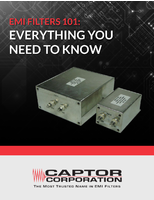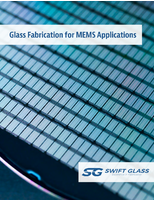Bar Code Printing Software supports RFID.
Share:
Press Release Summary:
Available for Unix, Linux, and Windows, BARCODE 2000 v7 supports RFID-capable thermal label printers and allows users to set-up component fields such as Serial Number and Company Prefix. Enterprise-wide, server-based label printing software also supports 11 Electronic Product Code tag types. Label data source connections can be defined or re-defined after design process, and database connections can be directly accessed via JDBC connection to user database.
Original Press Release:
Unibar Announces BARCODE 2000(TM) Version 7.0 Supports RFID, New Implementation Features, Database Interface Enhancements
Bar code printing software provides bar codes and labels for Unix, Windows and Linux applications
Rochester Hills, MI -- October 20, 2004, - Unibar Inc., bar code software manufacturer, today announced Version 7 of BARCODE 2000, its high-performance, enterprise-wide, server-based label printing software for Unix, Linux and Windows. New features include RFID support and enhanced WYSIWYG capabilities as well as several new implementation features for reduced development and integration time. Database JDBC interface support for Oracle, MySQL, Progress, Informix, SQL Server are provided. In addition, an XML option is now available.
BARCODE 2000 V7 RFID Support:
The BARCODE 2000 software supports RFID-capable thermal label printers, which encode the RFID tags (tags that emit radio signals) when they print text and bar codes on labels.
BARCODE 2000 V7 supports the RFID capability of Printronix and Zebra RFID thermal label printers; RFID support for Sato, Datamax, Intermec, and Paxar RFID printers will be available in early 2005.
"BARCODE 2000 makes RFID tags easy to work with", said Rocky Krcatovich, Unibar's Vice President of Technology Services. "To add a tag, simply select the RFID icon. Data is defined in the same way as for bar codes and text strings."
"BARCODE 2000 V7 users have options when creating RFID bar codes," said Krcatovich. "They can set up component fields, such as 'Serial Number' and 'Company Prefix' and let BARCODE 2000 perform the bit field manipulations necessary, or they can define a pre-built string to be simply passed on to the printer. In either case, an antenna graphic is displayed in the label designer, enabling the user to avoid placing a printed field on top of the antenna .
Eleven EPC (Electronic Product Code) tag types are supported, including both 64-bit tags and 96-bit tags, compliant with the EPC Tag Data Standard Version 1.1 revision 1.24. The EPC is a unique number that identifies a specific item in the supply chain, as designated by the EPCglobal Network. EPC support encompasses the primary activities associated with supply chain management, such as Shipping Container Code, Global Location Number, Returnable Asset Identifier, SGTIN (Serialized Global Trade Item Number). When the EPC is retrieved from the tag, the data offers a variety of dynamic information, such as origination or date of production.
BARCODE 2000 V7 New Implementation Design Features:
BARCODE 2000 Vs. 7 provides new, easy to use Implementation features;
A complete new design interface is provided, improving the WYSIWYG capabilities of the Java2 design tools.
Label design can be done on a laptop or a Linux or Unix workstation and printed on a Linux, Unix or Microsoft platform.
Label data source connections can be easily defined or re-defined after the design process. Database connections (table-field names) can now be directly accessed by use of a JDBC connection to the users' database; Oracle, SQL Server, MySQL, Informix, Progress, and other JDBC-enabled databases are supported.
BARCODE 2000 V7 Print Features:
No separate Print Server is required, BARCODE 2000 V7 runs on most servers including Unix, Linux, and Microsoft;
Most label printers are supported, including the complete product lines of Zebra, Sato, and Datamax, as well as the newer Printronix, Intermec and Paxar printers;
The Label Print Module is written in Ansi C for high performance and is available for 16 platforms;
Java Method is provided to communicate with the print module if desired;
A Shell can also be used.
BARCODE 2000 V7 - Enhanced database support:
BARCODE 2000's XML support provides both the synchronous and asynchronous interfaces.
Stored procedures and data triggers can be used with the standard interface or XML for printing dynamic labels for Oracle WMS and Mobile Supply Chain; XML can be used with other databases and applications.
BARCODE 2000 high-performance, multi-platform, enterprise-wide software requires no special print servers or other dedicated hardware. It operates virtually transparent with respect to applications that furnish label data. BARCODE 2000 supports 1D and 2D bar codes, RFID, including retail compliance and automotive label requirements.
BARCODE 2000 V7 is scheduled for general release in January 2005. However, an early release is now available. Unibar products are sold through VARs and resellers or by calling Unibar directly at 800-731-6044 x290, or accessing www.unibar.com.
More about Unibar:
Founded in 1990, Unibar, Inc. is a privately owned corporation located in Rochester Hills, Michigan. For additional information contact Unibar at 2731 South Adams Road, Rochester Hills, MI 48309-3103. Telephone: 248.299.5050, Fax: 248.299.5052, unibar@unibar.com or access www.unibar.com.
Unibar and BARCODE 2000 are trademarks of Unibar, Inc.
All other trademarks are property of their respective owners.




